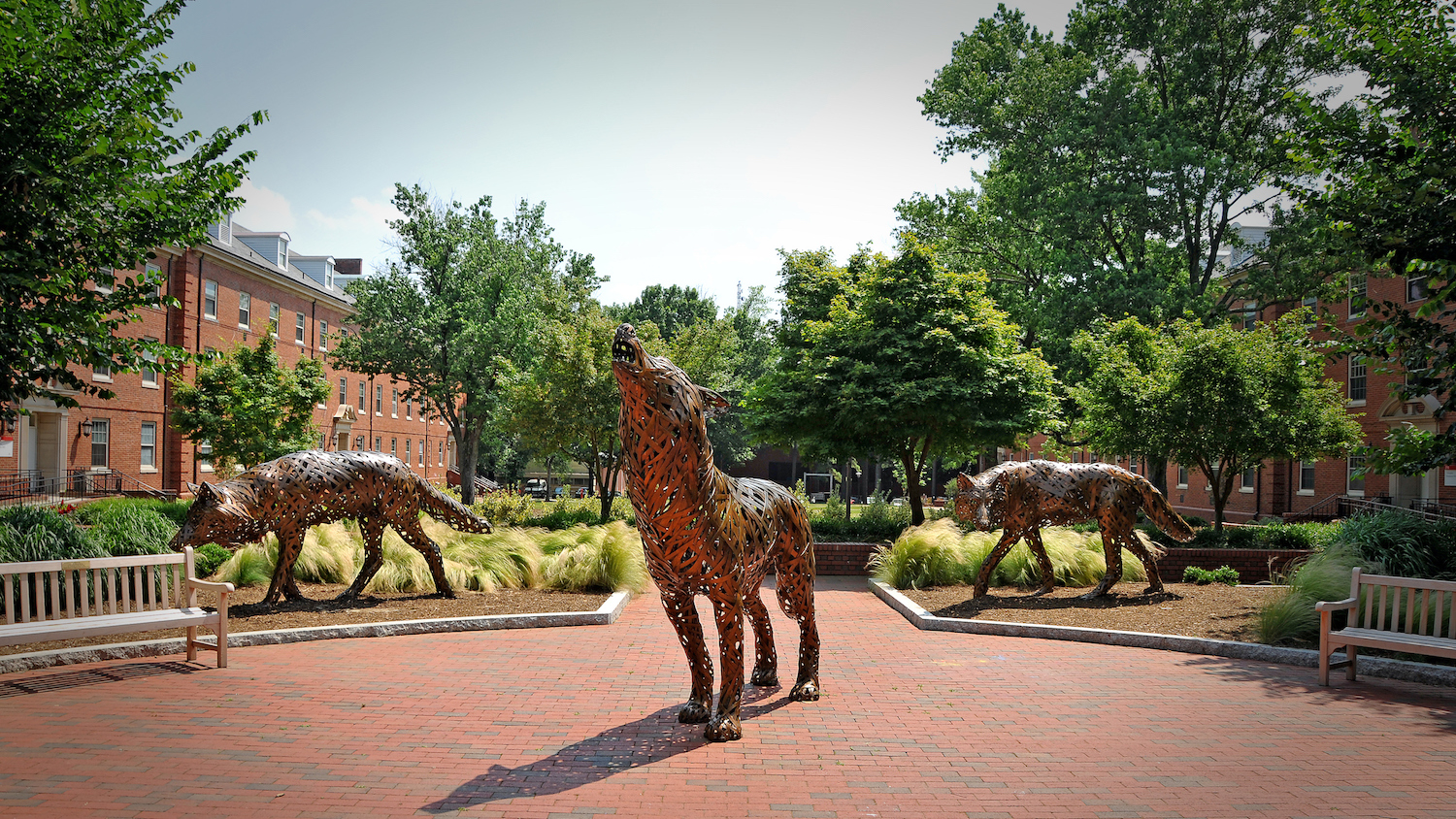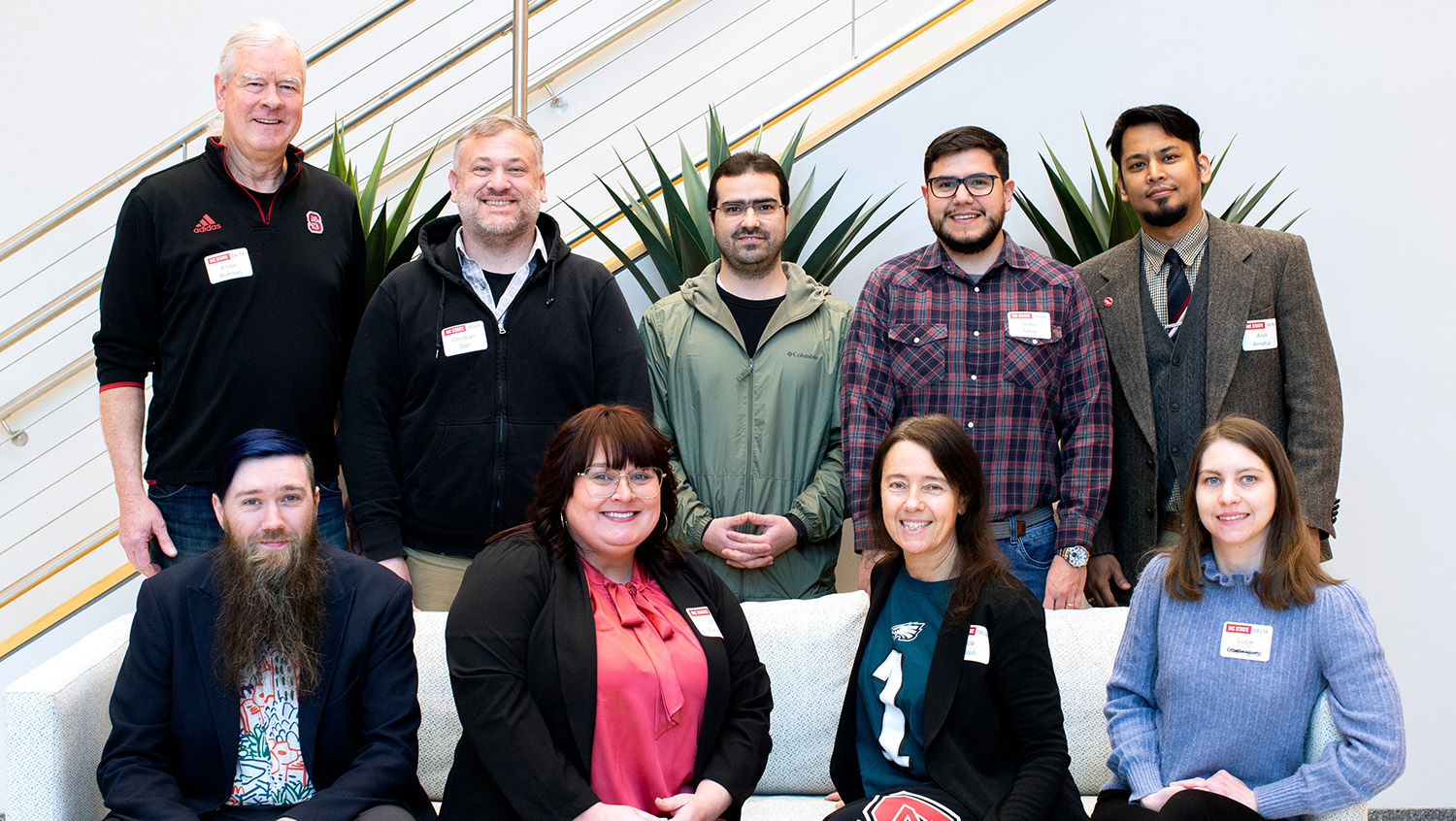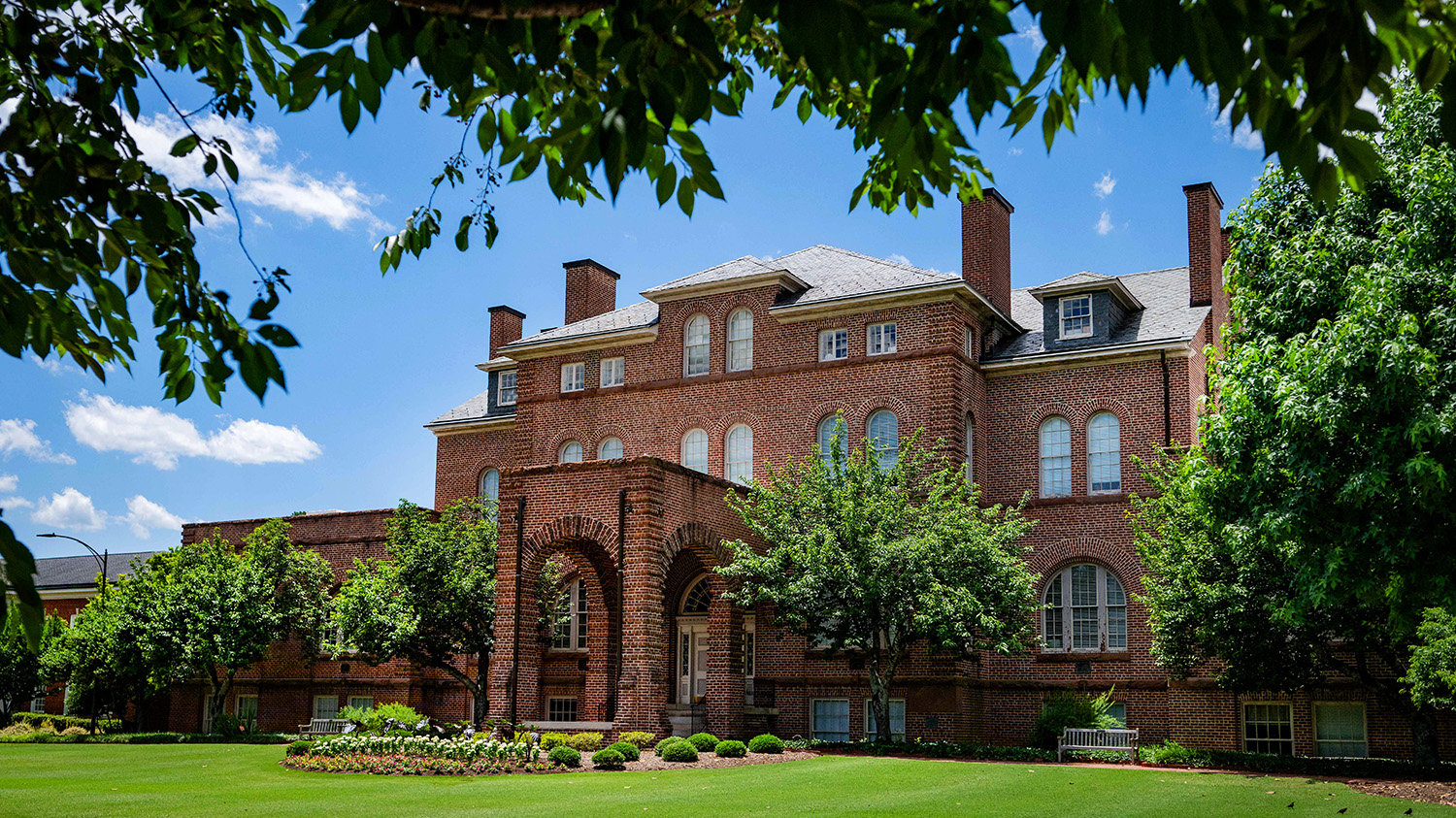Graduate Explores New Interests in Her Online Master’s Program

 Julia McClung is not afraid of trying new things. She’s tried her hand at a number of professions in the past, from people management, operations and technical writing to social work, animal rescue and stand-up comedy.
Julia McClung is not afraid of trying new things. She’s tried her hand at a number of professions in the past, from people management, operations and technical writing to social work, animal rescue and stand-up comedy.
“I had clear ideas of where my passions lay — and where they didn’t,” she says.
A desire to get outside and into nature led McClung to the College of Natural Resource’s online Master of Parks, Recreation, Tourism and Sport Management. Although she was originally focused on becoming a park ranger or a manager and a self-described “sports un-enthusiast,” the program has opened her eyes and prepared her for brand new possibilities.
“I wanted to pursue a career in park management and rebalance my life to help others connect with nature and make the most of their time in it. I saw this degree as my best way to enter the field. What I left with was so much more.”
We caught up with McClung to learn more about her experience in the master’s program and congratulate our #NCStateOnline spring 2020 graduates!
Why did you pursue your master’s degree in Parks, Recreation, Tourism and Sport Management (MPRTSM) from NC State Online?
Starting in the fall of 2018, this program began as a means to an end. I pursued the Master of Parks, Recreation, Tourism and Sport Management to connect with something larger and more organic than cube walls and coffee machines. I looked at other programs around the nation, but nothing made more sense than applying to my local university that also happened to have an extremely positive reputation for forestry, natural resources, environmental science, and parks, recreation and tourism. The availability of online accommodation made it the perfect choice for me.
Describe your experience in the MPRTSM program.
Going back for a second master’s degree at 46 was daunting. I hadn’t read a textbook, written an academic paper, or interacted in a classroom in nearly 20 years. At the orientation session, I was struck by how much older I felt compared to the majority of the cohort. But the orientation session also was the moment I knew I had made the right choice. The orientation provided an excellent foundation for understanding the scope and mission of the program and it resonated with me.
Maybe it is partially due to my age that I immediately felt “all in”. School, for the first time in my life, was 100% my choice. There was nothing riding on my success or failure. I have a stable career, my own home, and a strong network of friends and family. This program was entirely for me. And I could not have been more motivated to get everything I possibly could from it.
How did you balance working and completing your degree?
I underestimated how difficult it would be to manage coursework, full-time employment, family, and home. Even with a flexible job and stable finances, the program was challenging. There were times during the program when I felt completely overwhelmed. Fortunately, my interest in the material, the support of our professors, my drive to succeed, and my desire to enter the field helped me get past the low points. Each obstacle was rewarded with a sense of accomplishment and realization I’d learned something new and valuable.
How do you see your MPRTSM helping you in your current career?
Dr. Jason Bocarro’s Organizational Behavior and Leadership Development (PRT 506) and Dr. Aaron Hipp’s Data Management and Applications (PRT 504) courses had the greatest immediate impact.
I realized my previous experience with leadership development had been based on excerpts and buzzwords with no examination of the underlying research. The Four Frames model is a useful framework for understanding my own leadership orientation and why I work better with some than others. I enjoyed revisiting “systems theory,” a concept that resonated with me from my graduate studies in social work. Encouraging and fostering open systems on micro- and macro-levels contributes to healthy, growth-oriented relationships. Using this approach to help an organization recognize the benefits of and adapt to frequent, and sometimes painful, changes can make me a more effective leader.
I apply my new data management, analysis, and visualization skills every day [as Manager, Global Support Operations] at NetApp. Our leadership has turned over aspects of our monthly and quarterly reporting to me that used to be done by our formally trained, career data analysts. I take deep, and somewhat perverse pleasure, in pointing out when colleagues make conclusions not supported by data or overstate the significance of a particular finding. Being able to determine statistical significance, qualify associations, and forecast trends based on generated data gives me tremendous satisfaction. I’m afraid I’ve become a bit insufferable.
Did you have any faculty members who were particularly inspiring or stood out to you?
This is a tough question. Each professor was friendly, enthusiastic, interesting, in command of their discipline, and an effective instructor. I honestly looked forward to every class with each of them. But with Dr. Jason Bocarro, Dr. Aaron Hipp, and Davin Olsen, I was truly sad when the session ended. Their energy, engagement, support, and talent for storytelling made every class feel like tuning into my favorite show.
What is your advice for other working professionals who are thinking about continuing their education or are currently enrolled in a master’s program?
The online master’s program was challenging but absolutely do-able. Our cohort consisted of people in many stages of life who were balancing work, family, children, pets, and school. The structure of the sessions, online technology, and support of the professors and cohort were essential to our success. I was initially leery that online class sessions would be effective, but there was plenty of interaction and opportunity for conversation.
My advice is: participate fully! To get the most out of the online format, you really have to actively engage. Speak up, chat, ask questions, email your professor or peers. This interaction will help you build connections to the content, the people, and the field.
I think it’s also important to let your family and friends know the program will limit your free time. Asking for their understanding and support will go a long way toward helping you succeed.
I would never have been able to pause my career to pursue this passion without the option of the online program. I am so grateful for the opportunity and the exceptional quality of the program.
Do you have plans to celebrate your graduation during this time of social distancing?
I’m looking forward to attending the Zoom “Celebration of Accomplishment” on May 9 hosted by Dr. Michael Kanters and PRTSM. It will be a fun way to mark the day with friends and family who have definitely been on this journey with me for the past two years!
Feel free to share any additional thoughts.
Regardless of what the future holds, I could not be happier with my experience in the program or prouder of my accomplishments. I enjoyed this program more than any other academic endeavor and am so thankful for the quality of the program and the professors who brought their passion and expertise to the courses. Though I am looking forward to the upcoming free nights and weekends, I will sincerely miss the intellectual stimulation, discovery, personal connection, and joy I felt each week for the past two years.
Congratulations to Julia and all NC State Online spring 2020 graduates!
Are you interested in advancing your career with a Master of Parks, Recreation, Tourism and Sport Management? Visit the program page or online.ncsu.edu for a full list of degree and certificate programs.
- Categories:


